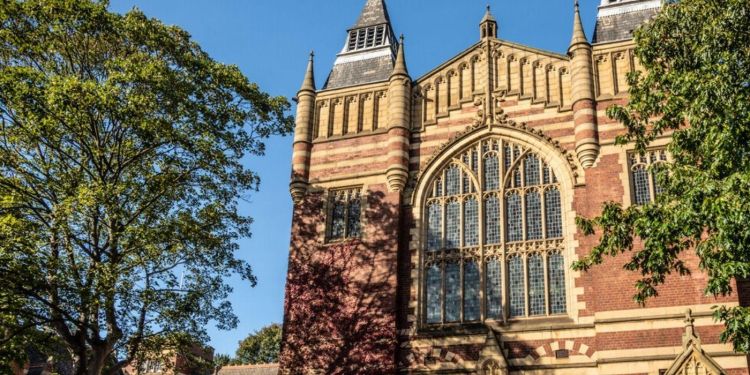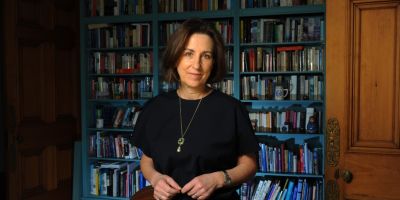Deliberations about Decolonisation – Kashmir Kaur

Ahead of the PRiA Hybrid Slow Conference 2023 on ‘Impactful Pedagogic Research in the Arts’ which will showcase research across the faculty successfully funded by PRiA Pedagogic Research Funds, funding recipient Kashmir Kaur has written a blog on Deliberations about Decolonisation.
Kashmir Kaur (SFHEA) is a lecturer in English for Academic Purposes in the School of Languages, Cultures and Societies. She currently teaches postgraduate in-sessional students in the Faculty of the Environment and leads the pre-sessional Language for Engineering. Her research interests are varied including ‘criticality’ and ‘decolonisation’ in higher education.
Deliberations about Decolonisation
“For the master's tools will never dismantle the master's house.
They may allow us temporarily to beat him at his own game,
but they will never enable us to bring about genuine change.”
(Lorde 1984, p.112).
What does decolonisation mean? What does it entail? Is decolonisation taking place if the same systems (white Eurocentric) of colonialisation are still employed?
In recent years, decolonising English or language or the curriculum has become ubiquitous in higher education. Currently, if you trawl through the websites of the various institutions, you will find this is still a prevailing topic not only how institutions are wrestling with the concept but also there are courses on offer concerning an aspect or aspects of ‘decolonising’.
Decolonisation means many things to many people and the various disciplines in academia. It is a concept that is complicated and contested (e.g. Hunt and Holmes, 2015; Tuck and Yang, 2012; Smith, 1999). Tuck and Yang (2012) highlight decolonisation is unsettling and argue that it’s not a metaphor. They remind readers that decolonising discourse can easily be adopted as a metaphor for other areas that we want to improve in society so need to be wary of this. Decolonisation demands a reflective effort. It requires recognition and acknowledgement of multiple ways of being and knowing. It necessitates spaces for epistemologies and approaches which have been historically rejected, othered, excluded and marginalised. As Chantiluke (2018 cited in Whitford, 2018, no pagination) asserts:
“[D]ecolonization operates at the political, epistemic and ideological heart of the university, with reformative implications for every facet of a university’s operation. It involves the decentering of Eurocentric value systems and knowledge production, the overhaul of the hierarchy of European ideologies and the reappraisal of whitewashed history.”
Suhanthie Motha (2014) brings another perspective to decolonising teaching English. She posits whether anti-racist and anti-colonial English teaching is possible and highlights the invisible role English plays in maintaining the inequities that arose from the depredations of colonisation and specifically the role the English language teaching industry plays in these dynamics. She argues that anti-racism cannot be separated from anti-coloniality. This lends itself to Kendi’s (2019) perspective that an idea, an action or a policy is either racist (contributing to a history that views different races inherently unequal) or it is anti-racist (trying to dismantle that history). He further adds:
“The opposite of ‘racist’ isn’t ‘not racist’. It is anti-racist… One either allows racial inequalities to persevere as a racist, or confronts racial inequalities, as an anti-racist. There is no in-between safe space of ‘not racist’. The claim of ‘not racist’ neutrality is a mask for racism.” (p.9).
Motha (2021) contends that this applies to our policies, our ideas and it also applies to how we teach knowledge and understandings that we create. She maintains that conceptualizing work in this way is immensely helpful and accessible as it forces one to think about their teaching. She adds that it’s imperative for educators to think about their own positionality in relation to the content of the class and articulate this.
At the end of January, I attended a two-day symposium ‘Decolonising English in Higher Education’ at the University of Southampton (UoS). It was primarily a vehicle to present preliminary findings of the research project – Decolonising English in higher education: Investigating issues of empowerment, access, socio-cultural diversity and global citizenship in English language teaching in multilingual universities – led by two UoS academics. This study investigates English language teaching in higher education with five case studies from diverse geographic regions – Kachru’s (1985) expanding circle – where English is not spoken in significant numbers but introduced as a foreign language.
This study has enabled visibility to institutions who are not naturally invited to partner in such high-profile collaborations. It was refreshing to hear voices from the smaller, newer institutions from across the globe: Prince of Songkla University, Thailand; Hue University of Foreign Languages, Vietnam; University of Al-Qadisyiah, Iraq; Universidad de Quintana Roo, Mexico and Universidad del Valle, Colombia. It was interesting to learn how concepts such as empowerment were understood and how the methodologies and findings were interpreted at the different sites and how each site contributed to the overall study.
Nevertheless, it does beg the question whether these voices would have been offered this platform if it were not for the ‘Widening Participation Research Grant’ - collaborations for high-profile projects are usually partnered with ‘preferred’ institutions in the top 100. However, by virtue of the study’s ‘widening participation’ remit, it has enabled these smaller institutions to contribute significantly to the project and to share their realities and lived experiences with a wider audience.
Considerations whether institutions are ‘decolonising washing’ requires reflection – a point also articulated at the symposium. To what extent are institutions addressing persistent colonial ideologies which further exacerbate existing inequalities? Maybe, it is time to decolonise decolonisation? (Opara, 2021). Institutions must be mindful that utterances are performative that engender social change – a way of being – and utterances are not performed as marketing techniques visible at a public facing level.
During the symposium’s final panel discussion, the chair (Martin Dewey, Kings College London) posed some interesting questions with respect to ideologies of language and practice:
- How complicit are we as members of an academic privileged ‘elite’?
- What efforts have you had to make to uncover and overcome your own assumptions/ perception biases/ internalising of dominant discourses and ideologies?
- How do you envisage the outcomes and potential of your work?
- How can we make a difference in meaningful ways in terms of policy and practice?
- (How) can researchers have a positive impact on teachers’ and students’ agency and/or promote critical reflection that is facilitative for their professional development?
As educators, we should all consider questions such as these and reflect on how we can ensure that language education in higher education is just and equitable. It is an imperative that all aspects are critically interrogated to bring equity to spaces which have inherently been deeply ingrained with whiteness and colonial ideologies and practices.
References
- Hunt, S. and Holmes, C. 2015. Everyday decolonization: Living a decolonising queer politics. Journal of Lesbian Studies. 19:2, pp.154–172.
- Kachru, B. B. 1985. Standards, codification and sociolinguistic realism: The English language in the outer circle. In R. Quirk, H. G. Widdowson and Y. Cantù (Eds.), English in the world: Teaching and learning the language and literatures (pp. 11–30). Cambridge: Cambridge University Press.
- Kendi, I. X. 2023. How to be an antiracist. New York: Penguin Random House.
- Lorde, A. 1984. Sister Outsider: Essays and Speeches. Berkeley: Crossing Press.
- Motha, S. 2014. Race, empire and English language teaching: creating responsible and ethical anti-racist practice. New York: Teachers College Press.
- Opara, I. 2021. It’s time to decolonise the decolonisation movement. PLOS Blogs Speaking of Medicine and Health. [Online]. [Accessed: 18 February 2023]. Available from: https://speakingofmedicine.plos.org/2021/07/29/its-time-to-decolonize-the-decolonization-movement/
- Smith, L.T. 1999. Decolonizing Methodologies: Research and Indigenous Peoples. New York: Zed Books Ltd.
- Tuck, E. and Yang, K.W. 2012. Decolonization is not a metaphor. Decolonization: Indigeneity, Education and Society. 1:1, pp.1–40.
- Whitford, E. 2018. Rhodes Must Fall, Inside Higher Education. [Online]. [Accessed: 18 February 2023]. Available from: https://www.insidehighered.com/news/2018/09/20/editors-discuss-new-book-rhodes-must-fall-movement-oxford




